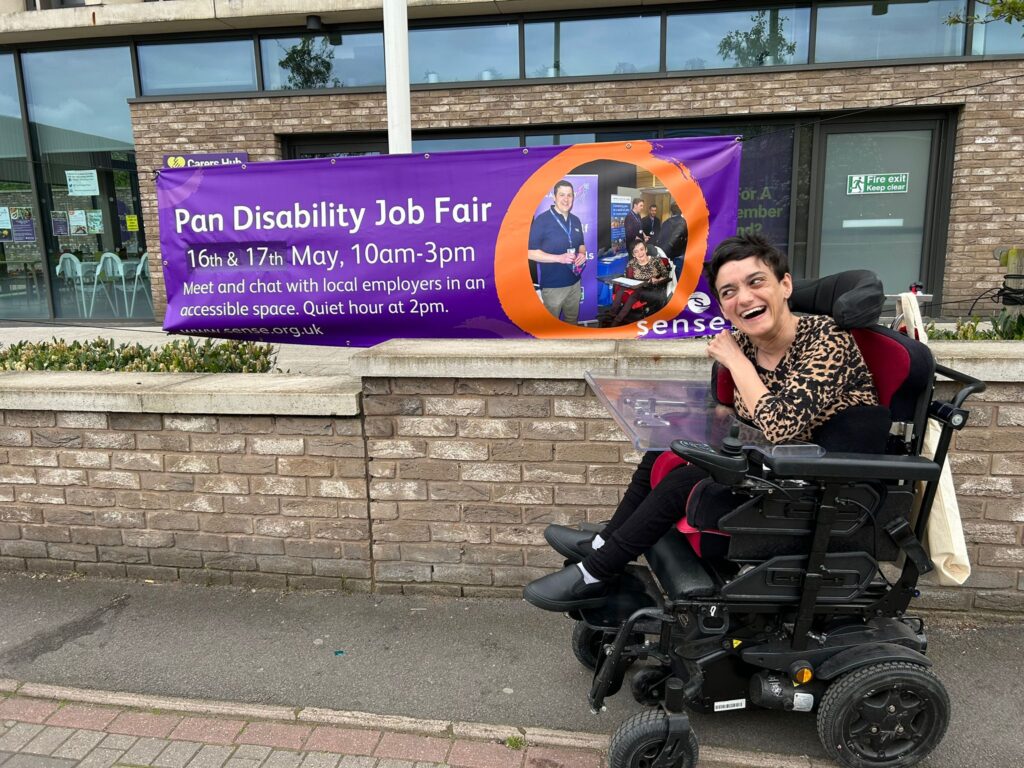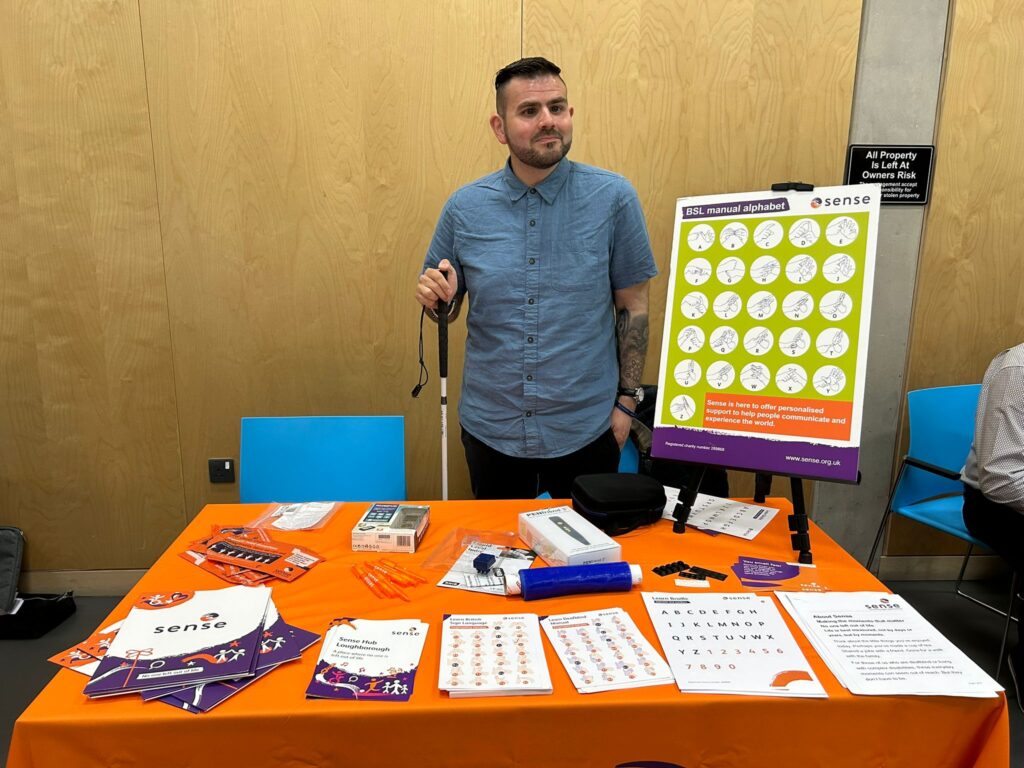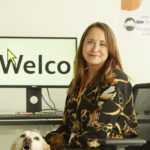How we’re bringing disabled people into work
Zoe Bates delivers our Birmingham employment services and recently organised our second recent Pan Disability Jobs Fair. She explains why it’s crucial to bridge the gap between disabled jobseekers and employers.
Everyone who wants to work should be able to. However, for many disabled people, it can be challenging to build connections with local employers.
Our research shows that many jobseekers with complex disabilities miss out on the support and opportunities they need to get into work. For example, 82% of people with complex disabilities were unemployed in 2020 – 21.
That’s why we ran our Pan Disability Job Fair between 16 – 17 May at TouchBase Pears, our centre in Birmingham.
Severn Trent supported the event, helping us to bring together 234 disabled jobseekers and 24 employers. Attendees included members of the local community and students from six colleges and schools. Our employers from a wide range of different industries, including retail, travel, healthcare, as well as the public and nonprofit sectors.

Getting in front of employers helps build confidence and make connections.
The event was a chance for jobseekers to speak directly with potential employers in an informal and accessible space, with support from British Sign Language interpreters, scribes and sight guides. We also made sure there were quiet time slots for neurodiverse job seekers so they could browse and ask questions in a calm and quiet environment.
They discussed vacancies and the skills required for different roles. These conversations are important starting points for disabled people embarking on the next step in their career – whether that’s getting back into employment or looking for a first job. Three quarters of the attendees said they felt more confident about their employment journey after attending.
Sami, who is looking for part time work in a sector such as retail, administration, care or hospitality, attended because they were keen to find new opportunities. They have struggled to find work because of employers’ lack of awareness about mental health, injuries and a lack of previous work opportunities. Sami said, “the jobs fair helped me understand what my employment options are and which types of organisation I could work for.”
Employers benefit from a more inclusive attitude.
Our engagement with the disabled community has shown that, unfortunately, job fairs are often inaccessible and employers lack awareness about accessible recruitment. As a result, employers risk missing out on a big potential pool of employees.
Smart Works Birmingham is a local charity that attended our event. They didn’t just meet potential candidates; they were also able to learn more about how to embed inclusive attitudes and practices in their hiring process by speaking with a diverse pool of candidates.
“It was a great event. I made some useful connections with potential referral partners and it was great to be able to engage with clients in person. As a result we have offered someone a yearlong work experience opportunity.”
Legrand Electronics, a Birmingham-based electronics manufacturer, had a similar experience:
“It exceeded my expectations. We left the fair with more contacts than expected and we also learnt a lot through conversations with job seekers, visiting companies and stallholders.”

Finding work can be daunting. The key is to take simple, practical steps.
Historically, there haven’t been many opportunities for disabled jobseekers to engage with potential employers. Through events like these, we’re changing that.
Chris, one of the volunteers who helped run the day, explains why developing a community during a job search can be so important for disabled people:
“Networking and being more proactive is important when job searching. Especially, when you have a disability or neurodivergence because environment is key so thinking outside the box and being creative is very important.”
Of course, the problem doesn’t end with finding work. Just under half of people with complex disabilities told us that they have had to take a less fulfilling role than they would like because of their needs as a disabled person not being met. Chris summed up why accessible jobs fairs are a useful step to help end that cycle:
“There needs to be more support for people with disabilities and neurodivergence whilst in work, to help them keep their job and do it effectively. That is why the Pan Disability Jobs Fair is so important in creating awareness and breaking down that stigma in industry.”
With our new national employment lead, Megan Alexander, we’re aiming to reach more people and expand our service across the UK. Get in touch with her and the team to learn about the ways we can support you.
Learn more about Sense’s employment service
We support people who are blind, partially sighted, deafblind and those with complex disabilities, whether they’re looking to get into the workplace for the first time or seeking information about support at work.

